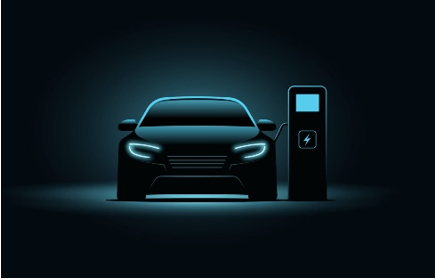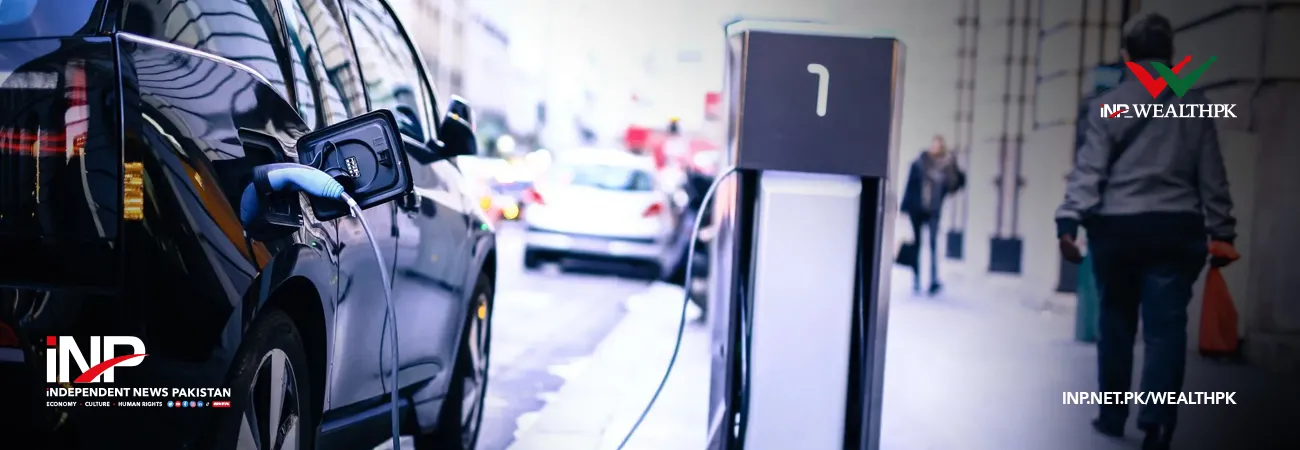i INP-WEALTHPK
Azeem Ahmed Khan
Pakistan’s rapidly growing middle class and its increasing demand for personal vehicles provide a large market potential for electric vehicles (EVs) sales, Head Centre for Private Sector Engagement, Sustainable Development Policy Institute (SDPI) Engineer Ahad Nazir said while talking to WealthPK.

“The electric vehicles market in Pakistan is expected to see considerable growth, with the government’s National Electric Vehicle Policy aiming to achieve a 30% share of EVs in total car sales by 2030,” he said. Pakistan has also pledged to reduce its greenhouse gas emissions by 50% of the projected levels by 2030, with a key element of this commitment being the promotion of cleaner energy sources and technologies, such as the 30% EV sales target by 2030.
Ahad noted that the primary goal of the National Electric Vehicle Policy (NEVC), introduced in 2019, was to reduce the country’s dependence on imported fossil fuels while boosting the EVs sales. The policy includes various incentives aimed at attracting both domestic and foreign subsidies for purchasing EVs, and exemptions from road taxes and registration fees for electric cars, buses, and motorcycles.
According to the NEVC, Pakistan is projected to achieve 30% electric car sales by 2030 and 90% by 2040. Sales of electric two-wheelers and three-wheelers are expected to reach 50% by 2030 and 90% by 2040, while bus sales are projected to hit 50% by 2030 and 90% by 2040. Similarly, electric truck sales could also reach 30% by 2030 and 90% by 2040. Globally, the electric vehicle market has seen rapid growth over the past decade, with EVs making up about 14% of the global car sales in 2022, up from just 2.5% in 2015, Ahad said.
While Pakistan’s EV market is still emerging, it has considerable potential for rapid growth, as seen in China, where EVs now make up a significant share of the total vehicle sales, he added. Discussing the economic benefits of EV adoption, Ahad explained that the transition to EVs could reduce Pakistan’s substantial oil imports, which have accounted for nearly 30% of its total import bill in recent years, putting significant pressure on the foreign exchange reserves. The EVs also offer numerous social benefits, particularly job creation.
Manufacturing, assembly, and development of charging infrastructure for electric vehicles will require skilled labor in fields such as engineering, design, logistics, and maintenance, he explained. Furthermore, Ahad said the EVs could help reduce air pollution, as they produced zero tailpipe emissions, unlike the fuel-powered vehicles. According to the World Health Organization, Pakistan’s air quality is among the worst globally, causing respiratory diseases and over 20,000 deaths annually.
Despite the promising potential of the EV sector, Ahad noted that Pakistan faced some challenges in scaling up the adoption of electric vehicles. One of the major barriers is the lack of a robust charging infrastructure, he said. While China is working towards establishing a nationwide network of EV charging stations, he said Pakistan currently lags in infrastructure development required to meet its targets. Without sufficient charging stations, particularly in rural or remote areas, the EV adoption will remain limited, he added.
Although the prices of EVs have been decreasing globally, they remain relatively high compared to the traditional gasoline vehicles, he noted. This remains a major issue for many consumers, even with the government’s incentives in place, he observed. Lack of affordable financing options is another challenge. The government has yet to establish a strong financing scheme that would make EVs more accessible to the middle and lower-income buyers. Consumer awareness of the long-term savings on fuel costs provided by EVs is still limited, he added.
Credit: INP-WealthPk









